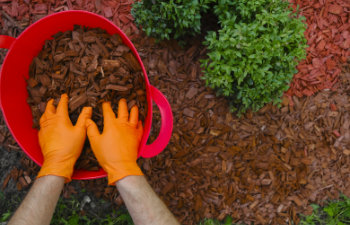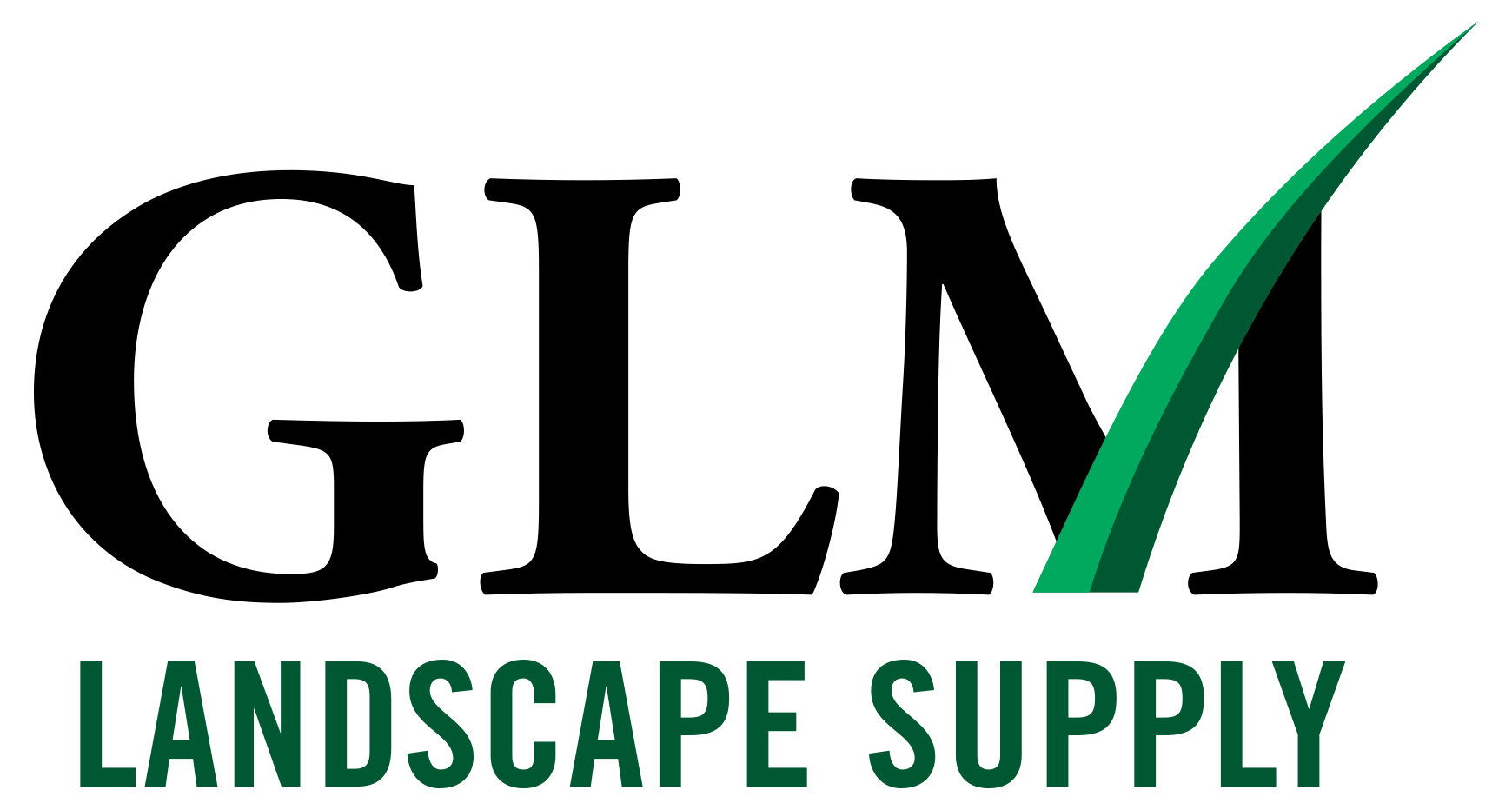
Mulch serves as the foundation of beautiful landscaping, providing moisture retention, weed suppression, and aesthetic appeal that transforms ordinary yards into stunning outdoor spaces. However, not all mulches are created equal when it comes to attracting insects and other unwanted pests to your property.
For homeowners in the Atlanta metro area, including Milton, Alpharetta, and surrounding communities, understanding which mulch types invite bugs versus those that naturally repel them can mean the difference between enjoying your outdoor space and constantly battling pest invasions.
Recent studies indicate that certain organic mulches can increase insect activity by up to 40% compared to pest-resistant alternatives, making mulch selection a critical factor in integrated pest management for your landscape.
The Science Behind Mulch and Insect Attraction
Understanding why certain mulches attract bugs requires examining what insects need to survive and thrive. Most problematic insects seek moisture, shelter, and food sources—three things that many popular mulch types readily provide.
Organic mulches create ideal microenvironments for insects by retaining moisture, moderating temperature fluctuations, and providing organic matter that serves as food for various pest species. As these materials decompose, they release nutrients and create habitats that insects find irresistible.
The decomposition process itself attracts different insects at various stages. Fresh organic mulch may attract different species than heavily decomposed material, creating an evolving ecosystem that can include both beneficial and problematic insects.
Temperature regulation provided by mulch layers creates comfortable environments for insects that might otherwise struggle in Georgia’s variable climate conditions. This consistent microclimate allows pest populations to establish and multiply more rapidly than they would in unmulched areas.
High-Risk Mulches That Invite Insect Problems
Several popular mulch types create particularly attractive environments for problematic insects, making them poor choices for homeowners seeking to minimize pest issues around their homes.
- Fresh Wood Chips and Bark Mulch: Newly chipped wood contains high moisture content and fresh organic compounds that attract termites, carpenter ants, and wood-boring beetles. The decomposition process releases volatile organic compounds that serve as chemical signals to various insect species, essentially advertising the location as a prime habitat.
- Pine Straw and Needle Mulches: While popular in Georgia landscapes, pine straw creates loose, aerated layers that provide excellent hiding places for ticks, fleas, and various crawling insects. The needle structure creates numerous small spaces that insects can easily navigate and establish nesting sites.
- Grass Clippings: Fresh grass clippings decompose rapidly, creating heat and moisture that attracts flies, gnats, and other flying insects. The high nitrogen content feeds bacterial growth that produces odors attractive to various pest species.
- Compost-Based Mulches: While excellent for plant nutrition, compost mulches contain organic matter in various stages of decomposition that attracts fruit flies, fungus gnats, and other insects that feed on decaying organic material.
- Straw Mulches: Agricultural straw often contains grain residues and seeds that attract rodents, which in turn attract fleas and other parasitic insects. The loose structure provides excellent harborage for various crawling pests.
Moderately Problematic Mulch Options
Some mulch types present moderate insect risks, attracting certain species while deterring others. Understanding these trade-offs helps homeowners make informed decisions based on their specific pest concerns.
- Hardwood Bark Mulch: Aged hardwood bark typically attracts fewer insects than fresh wood chips but can still harbor centipedes, millipedes, and various ground-dwelling insects. The dense structure provides good coverage but creates humid conditions that some insects prefer.
- Shredded Hardwood Mulch: This popular choice decomposes more slowly than fresh chips but still provides organic matter that attracts various insects. The shredded texture creates numerous hiding places while retaining moisture that many insects require.
- Cypress Mulch: Once considered naturally pest-resistant, cypress mulch loses much of its insect-repelling properties during processing and aging. Fresh cypress may deter some insects, but aged material becomes more attractive to various pest species.
- Cocoa Hull Mulch: While aromatic and attractive, cocoa hulls can attract ants and other insects drawn to the sweet compounds in the hulls. The decomposition process also creates conditions favorable to various soil-dwelling insects.
Low-Risk Mulch Alternatives for Pest Management
Several mulch options naturally resist insect infestation or actively repel common pest species, making them excellent choices for homeowners prioritizing pest control in their landscape design.
- Cedar Mulch: Natural compounds in cedar, particularly thujaplicins, repel many common insects including ants, termites, and various flying pests. Cedar mulch maintains its insect-repelling properties longer than most alternatives, though effectiveness diminishes as the material ages and weathers.
- Rubber Mulch: Made from recycled tires, rubber mulch provides no food source for insects and doesn’t retain moisture like organic alternatives. While not natural, it effectively eliminates most insect attraction issues associated with traditional mulches.
- Gravel and Stone Mulches: Inorganic mulches like decorative gravel, lava rock, or stone chips provide no food source for insects and don’t create the moist environments that many pests require. These options effectively eliminate most insect attraction while providing excellent weed suppression.
- Landscape Fabric with Stone: Combining weed barrier fabric with decorative stone creates an environment that most insects find inhospitable while still providing an attractive, low-maintenance landscape solution.
Geographic Considerations for Atlanta Area Homeowners
The Atlanta metro region’s climate and native insect populations create specific considerations for mulch selection that may not apply in other geographic areas.
Georgia’s high humidity levels intensify the moisture-retention properties of organic mulches, making them even more attractive to insects than they might be in drier climates. The extended growing season allows insect populations to remain active longer, increasing the importance of choosing pest-resistant mulching materials.
Native Georgia insects like fire ants, termites, and various tick species have evolved to thrive in the organic matter found in local forest floors. Imported organic mulches may actually provide even more attractive environments than these insects would find naturally.
The proximity to forested areas in much of the Atlanta metro means that insect populations can quickly colonize attractive mulched areas, making pest-resistant choices particularly important for suburban properties adjacent to wooded lots.
Proper Application Techniques to Minimize Pest Issues
Even potentially problematic mulches can be used more safely when applied correctly, while improper application of pest-resistant mulches can create unexpected insect problems.
- Depth Management: Maintaining proper mulch depth of 2-3 inches provides benefits without creating excessively moist conditions that encourage insect activity. Deeper applications create anaerobic conditions that can actually attract different pest species.
- Distance from Structures: Keeping mulch at least 6 inches away from building foundations prevents creating insect highways that lead directly to potential entry points into homes and other structures.
- Moisture Monitoring: Regularly checking mulch moisture levels and adjusting irrigation accordingly prevents creating overly wet conditions that attract moisture-loving insects like termites and carpenter ants.
- Regular Maintenance: Periodic mulch refresh and removal of excessively decomposed material eliminates established insect habitats while maintaining the aesthetic and functional benefits of mulched landscapes.
The GLM Landscape Supply Advantage in Mulch Selection
At GLM Landscape Supply, we understand that choosing the right mulch involves balancing aesthetic goals, plant health requirements, and pest management concerns. Our experience serving the Atlanta metro area, including Milton, Alpharetta, and surrounding communities, gives us unique insight into which mulch types perform best in Georgia’s specific climate and pest environment.
Our mulch products are carefully selected for quality and consistency, ensuring that you receive materials that provide the benefits you want while minimizing unexpected pest issues. We work with the highest quality suppliers in the Southeast to hand-select mulches that meet our strict standards for both appearance and performance.
Customer feedback consistently highlights the longevity and pest-resistance of our mulch products. As one Alpharetta customer noted, our mulch maintains its color and quality while other suppliers’ products fade quickly and create pest problems. This quality difference reflects our commitment to providing superior products at fair prices.
Our delivery service ensures that your mulch arrives fresh and is placed exactly where you need it, eliminating the handling and storage issues that can sometimes introduce pest problems before installation even begins.
Making the Right Choice for Your Property
Selecting the appropriate mulch for your landscape requires evaluating your specific priorities, including aesthetic preferences, maintenance requirements, plant needs, and pest control concerns.
Properties adjacent to wooded areas or those with existing insect problems may benefit most from pest-resistant mulch options, even if they require slightly higher initial investment or more frequent replacement.
Homeowners who prefer natural, organic landscaping approaches can still minimize pest issues by choosing properly aged organic mulches, maintaining appropriate application depths, and implementing integrated pest management strategies.
Consider consulting with landscape professionals who understand local pest patterns and can recommend mulch types that align with your specific property conditions and maintenance preferences.
Seasonal Timing for Mulch Applications
The timing of mulch application can significantly impact pest attraction, with certain seasons presenting higher risks for insect colonization of newly applied materials.
Spring applications should prioritize pest-resistant materials, as warming temperatures activate overwintering insect populations that are actively seeking new habitat opportunities. Fall applications face different risks, as insects prepare for winter and seek stable environments for overwintering.
Summer mulch applications in Georgia’s heat require special consideration of moisture management to prevent creating environments that attract heat-stressed insects seeking relief in mulched areas.
Your landscape deserves mulch that enhances its beauty while supporting plant health without creating pest problems that diminish your outdoor enjoyment. GLM Landscape Supply is committed to helping Atlanta area homeowners choose mulch products that deliver all the benefits they want while minimizing the insect issues they want to avoid.
Contact GLM Landscape Supply today to discuss your mulching needs and discover how our quality products and expert guidance can help you create a beautiful, pest-resistant landscape that you’ll enjoy throughout the seasons.
Posted on behalf of
13975 Hwy 9
Alpharetta, GA 30004
Phone: (770) 664-8200
Email: britt.thomas@glmsod.com
Mon-Fri: 8 a.m. - 5 p.m.Sat: 8 a.m. - 12 p.m.
Sun: Closed

